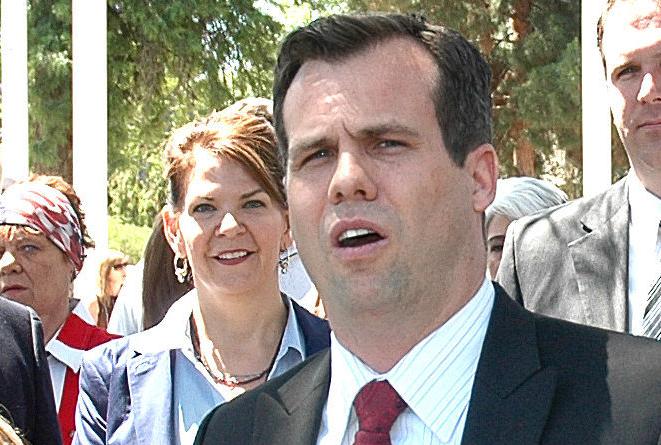PHOENIX — A state senator has taken the first steps he believes will force the city of Bisbee to give up its restrictions on the use of plastic bags, one way or the other.
In a complaint to Attorney General Mark Brnovich, Republican Warren Petersen of Mesa contends the 2013 city ordinance violates a 2016 law that specifically prohibits local governments from enacting regulations, fees or deposits on bags, bottles, aluminum or other “auxiliary containers.”
Petersen is taking advantage of another 2016 law that specifically requires the attorney general to investigate any time a legislator contends a local law is illegal. Brnovich has 30 days to investigate.
But the real power of that law is what happens if Brnovich finds the city’s ordinance is contrary to state law.
At that point, he has to notify the City Council of his decision. And if it refuses to rescind the measure, he can order the state treasurer to withhold all of the city’s state aid.
Councilman Douglas Dunn said if it comes to that, he and his colleagues will have to decide whether to challenge Brnovich’s conclusion or repeal the ordinance. But Dunn also took a swipe at lawmakers for what he sees as putting their noses where they don’t belong.
“This is something that has been highly successful in terms of reducing litter,” he said. “I just can’t believe that our Legislature, they have so much concern about overreach of the federal government, they have no concern about overreach into local government.”
The Bisbee ordinance imposes a nickel-a-bag tax on disposable bags.
Retailers get to keep 2 cents for the cost of bags and administering the fee; the balance goes to a fund that can be used to provide reusable carryout bags and to promote conservation and recycling programs.
Concerned that the idea could spread — officials in Flagstaff, Tucson and Tempe have been looking at their own ordinances as well — Petersen introduced legislation to pre-empt local laws.
The measure, first approved in 2015, makes it illegal for any community to impose fees or deposits on the use of “auxiliary containers,” which include everything from soda bottles and cups to disposable bags “used for transporting merchandise or food.”
Facing a lawsuit over the way the measure had been enacted, Petersen came back last year and recrafted it into its current form. It is that law that he now contends Bisbee is violating — and wants Brnovich to investigate and, potentially, cut off its state funds.
Petersen, in pushing the legislation on behalf of business interests that might be affected by such restrictions, told colleagues during debate he was acting in the name of individual freedom.
“I understand that some people want to make the decision of ‘paper or plastic’ for other people,” he said.
“And I understand some people have an ideology of collectivism,” Petersen continued. “For me, I support individual rights and people making their own decisions.”
Michele Ahlmer of the Arizona Retailers Association said she sees the issue in more basic terms.
She said it’s a matter of consistency for chains that operate statewide. Differing rules in various cities are “really hard to administer from a corporate level,” she said.
Dunn, however, said he sees it from the perspective of what it has meant visually to the community.
He said that prior to the ordinance there were areas of visual blight, with plastic bags clinging to trees.
Now, Dunn said, that has pretty much disappeared.
Dunn said he expects the council to meet in executive session with City Attorney Britt Hanson to decide what to do next, if anything. Hanson said he could not comment on the complaint.
But in a letter to Brnovich after the ordinance was adopted, Hanson said that Bisbee — along with several other communities — is a charter city entitled to enact matters of strictly local concern. And he argued that the bag ordinance fits within that category.
“One of the several purposes of Bisbee Ordinance O-13-14 was to eliminate the unsightly litter along Bisbee roads and elsewhere that resulted from plastic bags blown and caught on trees,” Hanson wrote.
“Accordingly, the city regards the ordinance as in full force and effect.”
And Hanson noted something else: The Bisbee ordinance was enacted before even the 2015 version of the law.
Whether that makes any difference remains to be seen.





